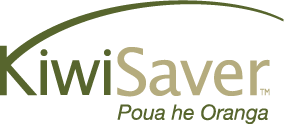 Ka pēhea a KiwiSaver e mahi ai
How KiwiSaver works
Ka pēhea a KiwiSaver e mahi ai
How KiwiSaver works
KiwiSaver is a voluntary, work-based retirement savings scheme. Independent KiwiSaver providers run the savings schemes. You can choose one of them to manage your savings.
KiwiSaver is for all New Zealand citizens and permanent residents living or normally living in New Zealand. Members can still get New Zealand Superannuation when they reach 65.
You are automatically enrolled into KiwiSaver if you are:
- eligible to be enrolled
- starting work with a new employer
- aged between 18 and 65.
If you are eligible to join KiwiSaver
If you are eligible for KiwiSaver but not yet a KiwiSaver member you can enrol by:
- asking your employer for a KiwiSaver employee information pack and completing a KiwiSaver deduction form
- choosing a provider and signing directly with them.
If you're a salary or wage earner your employer may enrol you in KiwiSaver when you start a new job. You can stay enrolled, or you can opt out.
If you’re already employed but not a KiwiSaver member you can join either through your employer or through a KiwiSaver provider. Once you’ve joined, you will not be able to opt out.
If you stay enrolled you'll contribute either 3%, 4%, 6%, 8% or 10% of your before tax pay. If you do not choose a contribution rate, your employer will deduct the default rate of 3%. You'll contribute through wage deductions. If you're enrolled in KiwiSaver and under the age of 16, your employer will still deduct KiwiSaver.
If you're self-employed or not working, you can join KiwiSaver by contacting a KiwiSaver provider directly.
How KiwiSaver works for employers
Employers work out if new employees are eligible for automatic enrolment in KiwiSaver. They also enrol existing employees if they choose to opt in to KiwiSaver.
Employers send the details of all enrolments to us and also send us new employee KiwiSaver opt out requests.
Employers make KiwiSaver deductions from their employees' pay. They also make a compulsory minimum contribution of 3% towards their employees' KiwiSaver savings - unless they are already contributing to another superannuation fund for their employees.
An employer will also stop payments if their employee has a savings suspension, or if they’re given notice by us or their employee that contributions are to stop.
If an employer is given a temporary rate reduction notice by us or an employee, they must lower the employee’s contribution rate to 3%. They can also choose to match their employee’s reduced contribution rate.
Employers cannot give you financial advice.
Inland Revenue and KiwiSaver
Employers pay employee deductions and employer contributions to us with the rest of their payroll deductions like tax.
We also manage voluntary contributions from employees, self-employed people and those not working. Any money paid to us for KiwiSaver we pass on to KiwiSaver providers. We also administer requests for opt-outs and savings suspensions.
If you were automatically enrolled and do not choose a scheme, we will allocate you to one of our default schemes or to your employer's chosen scheme. Or you can opt in to a scheme via your employer.
We cannot give you financial advice.
KiwiSaver providers
KiwiSaver scheme providers invest their members’ KiwiSaver savings to make a greater return on the savings for their retirement. They also have the main relationship with members.
KiwiSaver providers can give you financial advice.
The government KiwiSaver contribution
There is a yearly government KiwiSaver contribution to some members. KiwiSaver providers apply for this government contribution on behalf of their members. The amount of the government contribution depends on how much a member has contributed to their fund from 1 July to 30 June. The maximum amount the government contributes is $260.72. To be eligible for the government contribution, you must earn an annual taxable income of $180,000 or less.
Finding out more about retirement planning
We can't give you financial advice, and neither can your employer.
For free and balanced information about getting ready for your retirement, you can go to the Sorted website.
Sorted.org.nz
Contact a financial advisor for independent financial advice on:
- your financial situation
- KiwiSaver and how it works
- if KiwiSaver is right for you
- how to choose a scheme or investment product.
The Financial Markets Authority (FMA) regulates financial advisors. The FMA can give you information on financial advisors and a list of authorised financial advisors. Financial advisors must be licensed.

